In a world where 80% of marketers acknowledge influencer marketing as a strategy, integrating intelligence (AI) is changing how brands and influencers connect with potential customers across various platforms such as Instagram, YouTube, TikTok and Facebook.
This article delves into AI’s tools and solutions to enhance engagement, simplify content creation, and measure campaign effectiveness.
By harnessing AI, influencer marketing is not just. It is also becoming a data-driven, accurate, impactful means of communicating with consumers.
Influencer Marketing Platforms Using AI Right Now
In today’s changing world, influencer marketing platforms powered by AI are becoming essential tools for both brands and influencers. These platforms utilise algorithms to optimise the search for creators, streamline campaign management, and provide insights. As a result, they enable personalised marketing strategies.
We will explore 7 AI influencer marketing platforms that revolutionise how brands connect with influencers and their audiences.
1. Grin

Grin is a robust influencer marketing platform tailored for direct-to-consumer brands, harnessing the power of AI to facilitate an efficient creator search process. It sifts through extensive data to match brands with influencers who resonate with their values and promise high engagement with the target audience. Grin’s interface simplifies campaign management, making it a go-to for brands aiming for impactful collaborations.
2. indaHash
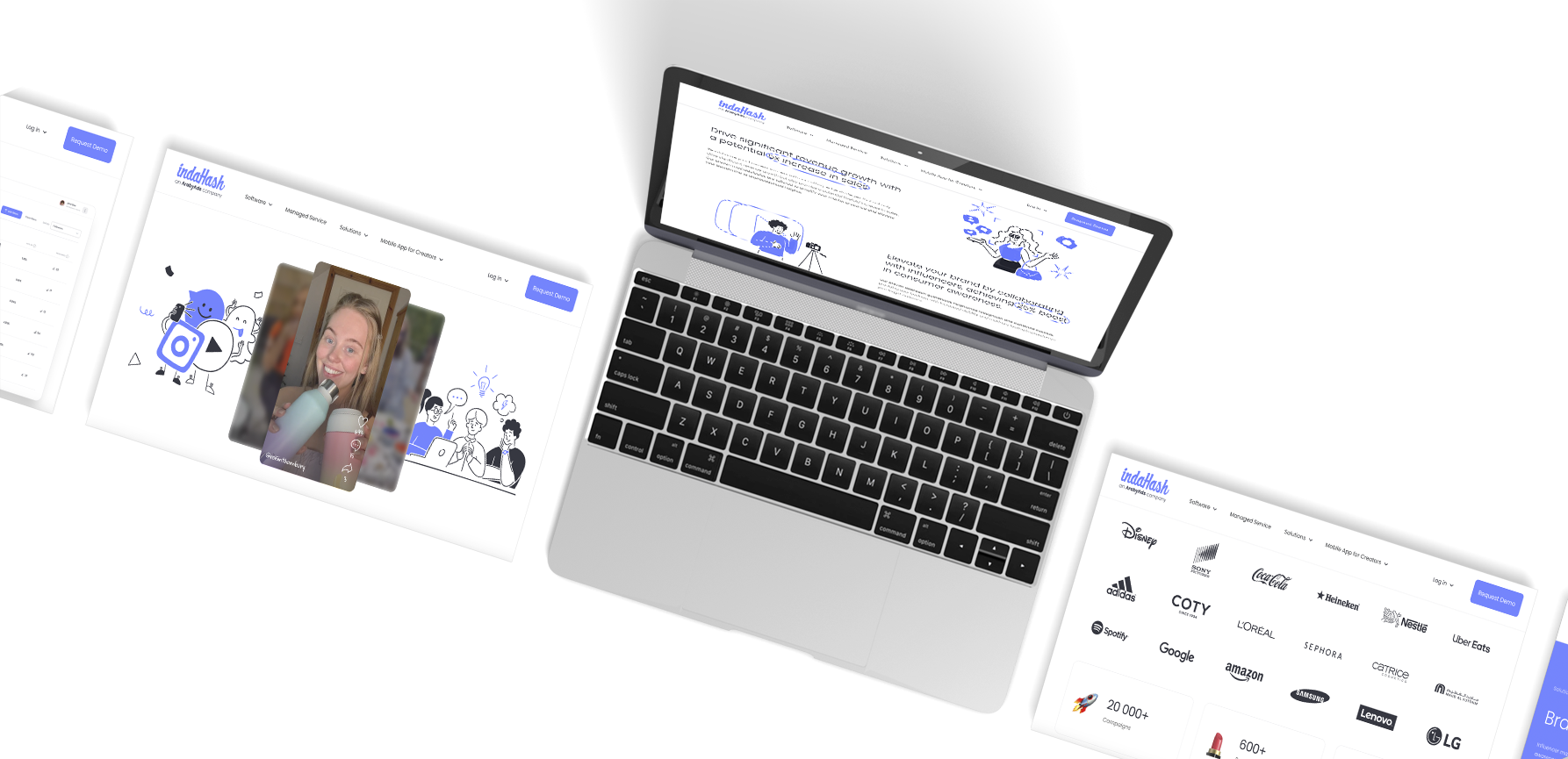
indaHash brings over 1 million digital influencers within reach of brands worldwide, simplifying the influencer marketing process. With over 20,000 successful campaigns and partnerships with over 600 renowned brands, indaHash leverages AI to streamline influencer matching, ensuring brands are paired with influencers who best fit their campaign goals and target demographics. This platform is not just about connecting brands with influencers; it’s about creating meaningful, impactful collaborations.
3. Crossnetics
Crossnetics is a pioneering platform at the intersection of digital advertising and blockchain technology, utilising AI to offer unmatched functionality and analytics in influencer marketing. With a focus on transparency, security, and efficiency, Crossnetics provides brands and influencers with unique tools to enhance their digital presence and engagement. Crossnetics is dedicated to optimising campaign performance and achieving superior client results through its innovative use of AI.
4. Influencity
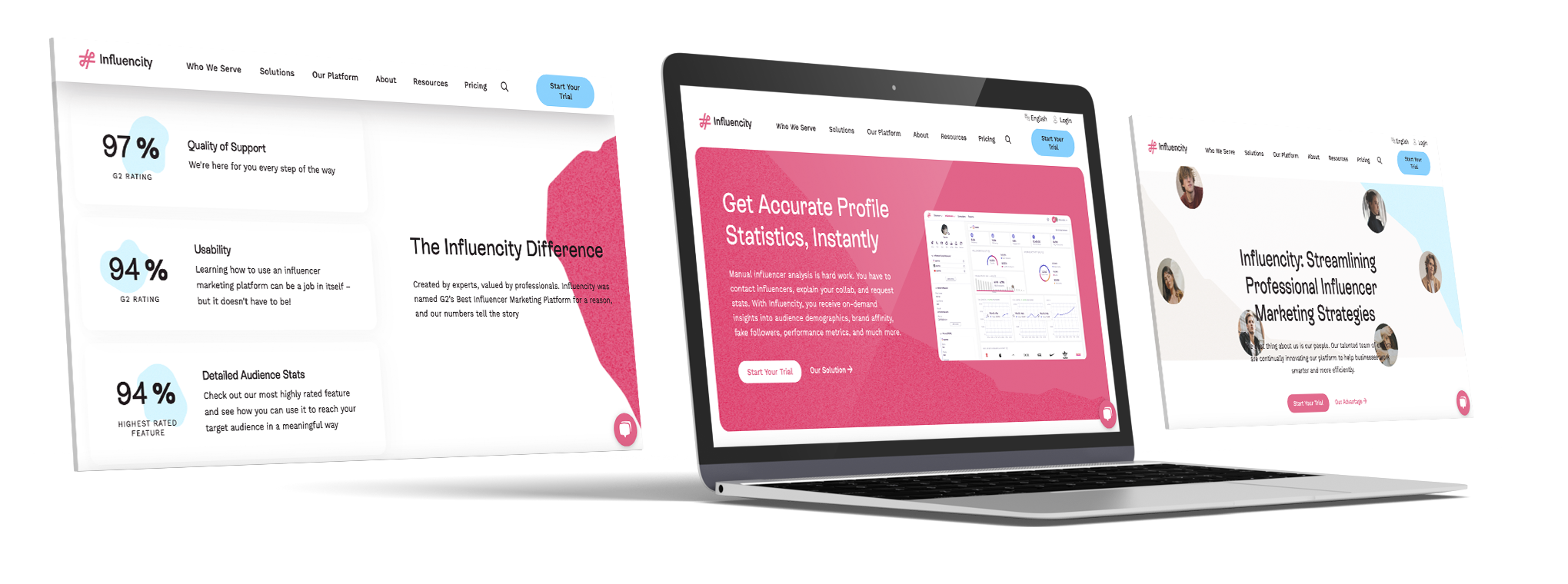
Influencity specialises in providing detailed analytics and audience insights powered by AI to offer marketers a comprehensive view of their campaigns. This platform stands out for its ability to forecast campaign performance, helping brands craft strategies that are not just reactive but proactive. Influencity is designed for precision in planning and execution, making it a powerful tool for data-driven marketing efforts.
5. Find Your Influence (FYI)

Find Your Influence uses artificial intelligence to offer seamless influencer marketing, covering everything from discovery to analysis. The platform has earned the trust of global brands like Netflix, Coca-Cola, Sony, Intel, and Loreal. It is known for its ability to predict the success of various influencer collaborations, giving brands the confidence to make informed decisions. FYI is a versatile platform that meets the needs of brands looking for a streamlined and practical approach to influencer marketing.
6. Influsoft
Influsoft is designed for brands focused on tracking and analysing the impact of their influencer marketing campaigns across different platforms. Influsoft was developed by what is arguably one of the top influencer marketing agencies in the world: Viral Nation. Its AI-powered analytics delve deep into engagement metrics and ROI, offering actionable insights. Influsoft is ideal for brands prioritising understanding their campaign’s real-time performance, enabling continuous optimisation.
7. CreatorIQ
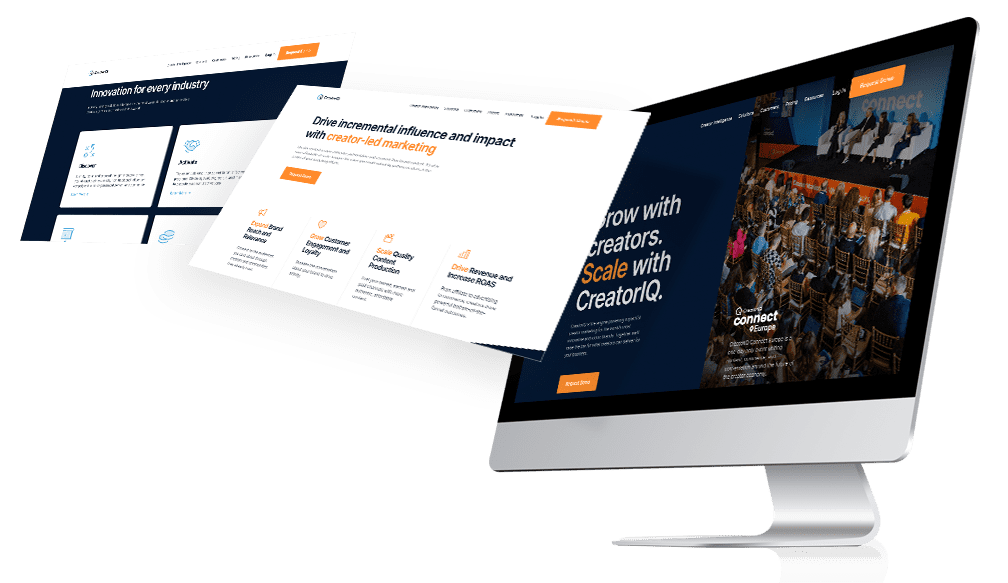
CreatorIQ integrates artificial intelligence to enable brands and agencies to utilise sophisticated influencer discovery and campaign management capabilities. It offers detailed information on influencer performance and features to detect fraudulent activity and predict campaign results. CreatorIQ enables Unilever to set global measurement standards for the influencer marketing industry. CreatorIQ is designed for marketers seeking a comprehensive intelligence platform to build authentic influencer relationships and achieve measurable success.
While each platform offers features and advantages, they all share an objective: utilising AI’s power to simplify and improve the influencer marketing process. By automating tasks, offering in-depth insights, and facilitating strategies, these platforms are invaluable resources for influencers, content creators, brand ambassadors and marketers looking to maximise their impact in today’s digital era. As AI technology advances, we can anticipate these platforms becoming more sophisticated, providing more significant opportunities for personalised engagement and successful collaborations between brands and influencers.
How AI is Solving Influencer Marketing Challenges
In today’s changing world, influencer marketing has become crucial in effective marketing strategies. However, this dynamic field has its share of challenges, including influencer fraud and ensuring the content resonates with the intended audience. Artificial intelligence (AI) is now emerging as an ally in tackling these issues and improving influencer campaigns’ precision, efficiency, and impact. This insightful exploration sheds light on how AI tools transform how brands and marketers navigate the complexities of influencer marketing.
Enhancing Target Audience Alignment
Identifying and reaching the right audience is paramount for the success of any marketing campaign. AI excels in this area by:
- Deep Behavioural Insights: Leveraging AI, brands can delve into potential customers’ nuanced interests and behaviours, ensuring influencer collaborations resonate with the intended audience.
- Predictive Audience Matching: AI’s predictive analytics match brands with influencers whose followers mirror their target demographic, maximising relevance and impact.

Fact: Studies show that AI-driven audience targeting can increase campaign engagement by up to 50%.
Streamlining Content Strategy with AI
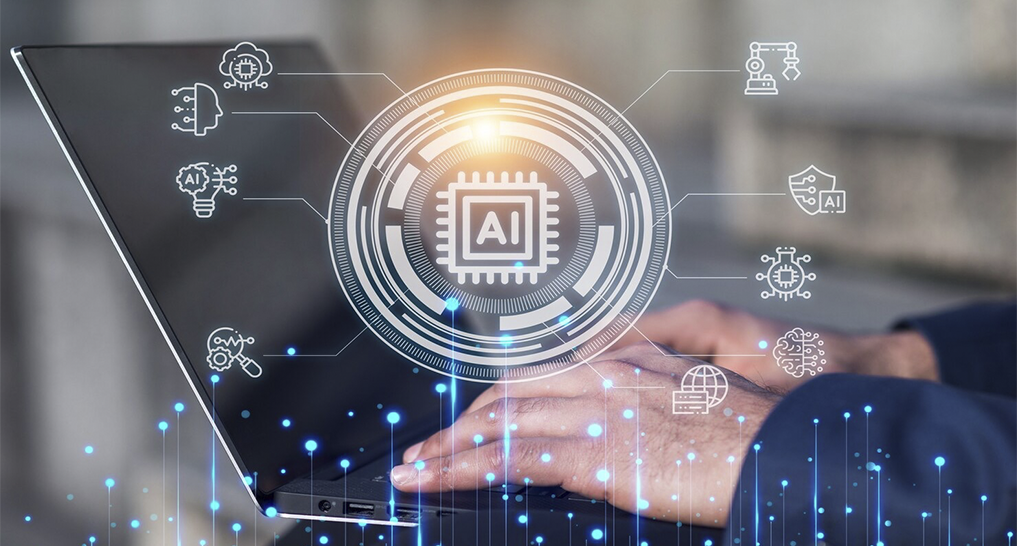
Content is the linchpin of influencer marketing, and its creation and optimisation are crucial for engagement. AI contributes significantly by:
- Content Performance Analysis: AI tools evaluate past content performance, guiding influencers and brands towards topics and formats that garner the most engagement.
- Trend Prediction: By analysing current trends, AI predicts future content directions, helping influencers stay ahead of the curve.
Overcoming Influencer Fraud with AI
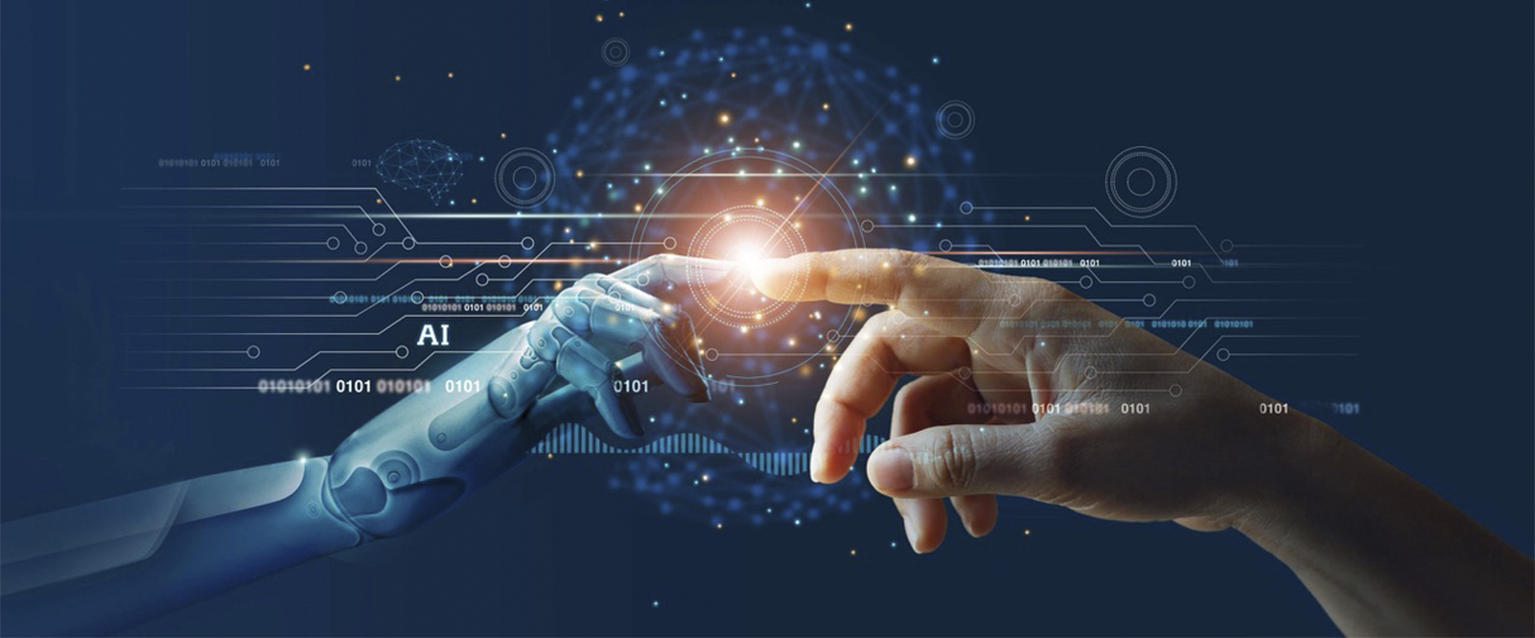
Influencer fraud poses a significant challenge, undermining the authenticity and effectiveness of campaigns. AI is changing the game by:
- Detecting Fake Followers: AI algorithms scrutinise follower profiles, distinguishing genuine engagement from bots or purchased followers.
- Ensuring Authentic Engagement: AI helps brands identify influencers with truly engaged audiences by analysing engagement patterns and enhancing campaign authenticity.
Example: A fashion brand uses AI to scrutinise potential influencer partners, discovering that an influencer with a seemingly large following has 40% bot followers, enabling the brand to make an informed decision against collaboration.
Optimising Campaign Performance Metrics
Measuring and adapting campaign strategies in real time is crucial for achieving desired outcomes. AI aids in this aspect by:
- Real-Time Analytics: AI provides ongoing analysis of campaign metrics, allowing for adjustments to be made on the fly for optimal performance.
- ROI Improvement: Through detailed performance insights, AI enables brands to allocate their budgets more effectively, improving overall campaign ROI.
Predicting Success and Developing Personalised Strategies
AI’s predictive capabilities are a game-changer for planning and executing marketing campaigns. This technology allows for:
- Forecasting Campaign Success: AI analyses historical data to forecast the potential success of campaigns, enabling marketers to make data-driven decisions.
- Customised Marketing Approaches: AI’s insights allow for the customisation of marketing strategies to better align with brand goals and audience needs, ensuring higher engagement and success rates.
Fact: AI predictive models have been shown to improve campaign success prediction accuracy by up to 80%.
The application of AI in influencer marketing is not just theoretical; many brands have successfully leveraged AI tools to achieve remarkable results:
- Netflix utilises AI for personalised content recommendations, analysing users’ viewing habits to tailor suggestions, significantly enhancing customer retention and reducing costs. This strategic use of AI contributes to 80% of what users watch on the platform, showcasing AI’s pivotal role in marketing strategies.

- Sephora leverages AI through a chatbot and the Virtual Artist feature, offering personalised shopping experiences and makeup trials via facial recognition technology. These innovations have markedly improved customer satisfaction and sales, demonstrating AI’s potential to revolutionise customer interaction in the beauty industry.

It’s undeniable that AI is reshaping the landscape of influencer marketing by offering solutions to combat fraud, improve audience targeting, streamline content creation, and optimise campaign metrics. For marketers, brands, influencers and creators, incorporating AI tools into their strategies represents a step towards more genuine, efficient and impactful marketing campaigns. As AI continues to evolve at a pace, it holds the potential to further revolutionise influencer marketing by guiding us towards data-driven insights that foster authentic connections and drive unparalleled campaign success.
How AI Could Change Influencer Marketing in the Future
As we find ourselves on the verge of an era in the marketing world, Artificial Intelligence (AI) is set to revolutionise the influencer market in ways never seen before. This incredible technology has the power to analyse and process amounts of data at lightning speeds, bringing about a transformation that not only simplifies operations for brands and creators but also enhances the genuineness and effectiveness of content. In this exploration, we delve into what lies for influencer marketing driven by advancements in AI technology.
Personalised Influencer-Brand Matches
The future of influencer marketing lies in the precision of pairing brands with the most suitable creators. AI algorithms are becoming increasingly sophisticated, capable of analysing an influencer’s audience demographics, engagement rates, content style, and even sentiment analysis to ensure a perfect match with brands’ target audiences. This level of personalisation ensures that marketing efforts are seen and resonate deeply with the audience, fostering genuine connections and driving engagement.
Enhanced Content Authenticity
One of the most significant impacts of AI on influencer marketing will be the enhancement of content authenticity. As audiences grow weary of overtly promotional content, the demand for genuine, relatable material is at an all-time high. AI tools can aid creators in developing content that aligns closely with their audience’s interests and preferences, using predictive analytics to suggest topics, formats, and even the ideal posting times to maximise reach and engagement.
Real-Time Campaign Optimisation
AI technology will enable real-time campaign optimisation, allowing brands and influencers to adjust strategies on the fly based on immediate feedback and performance metrics. This agile marketing approach ensures that campaigns remain dynamic and responsive to audience behaviour, significantly increasing the likelihood of achieving desired outcomes. AI’s ability to process complex data in real-time means that every decision, from content tweaks to budget adjustments, can be informed by the latest insights, making campaigns more effective and efficient.
Predictive Performance Analysis
Studies have shown that AI can improve the predictive accuracy of marketing campaign outcomes by up to 40%. This capability will revolutionise how brands allocate their marketing budgets and select collaboration influencers. By analysing historical data and current market trends, AI can forecast the potential success of different strategies, guiding brands towards the most effective partnerships and content approaches.
Democratising Influencer Marketing
The future of influencer marketing with AI also promises to level the playing field, making it accessible for brands of all sizes. AI tools can automate many processes in identifying and collaborating with influencers, reducing the need for large marketing budgets and resources. This democratisation means that small and medium-sized enterprises (SMEs) can leverage influencer marketing more effectively, opening up new opportunities for growth and engagement.
AI Tools for Influencers
In the evolving world of influencer marketing, game-changing tools like Castmagic, Ailiza, HubSpot, InVideo, ChatGPT, Grammarly and Canva leverage Artificial Intelligence (AI). These tools transform how influencers create content, engage with their audience, and manage their presence. Now, let’s delve into how each of these tools can transform your influencer marketing strategy.
Castmagic
Castmagic is an AI-powered platform designed to make the digital workspace easier for influencers. It offers scheduling features, content management systems and analytics to help influencers precisely plan and execute their content strategies. Its user-friendly interface allows managing social media accounts to make maintaining a consistent online presence effortlessly.

Ailiza
Ailiza is an AI-driven marketing platform that automates brand and influencer content planning and advertising processes. It offers advanced data analysis, intelligent budget allocation, and personalised content creation, ensuring strategies are both impactful and data-informed. With Ailiza, responding to customer feedback and adapting to trends becomes seamless, enhancing online marketing efforts with precision and efficiency.
HubSpot
HubSpot isn’t a tool for businesses; it’s a treasure trove for influencer marketers seeking to enhance audience engagement. With its CRM capabilities, influencers can keep track of every interaction with their followers to ensure no message goes unnoticed. HubSpot’s AI-driven analytics also provide insights into audience behaviour. This enables influencers to tailor their content and interactions according to the preferences and needs of their community.
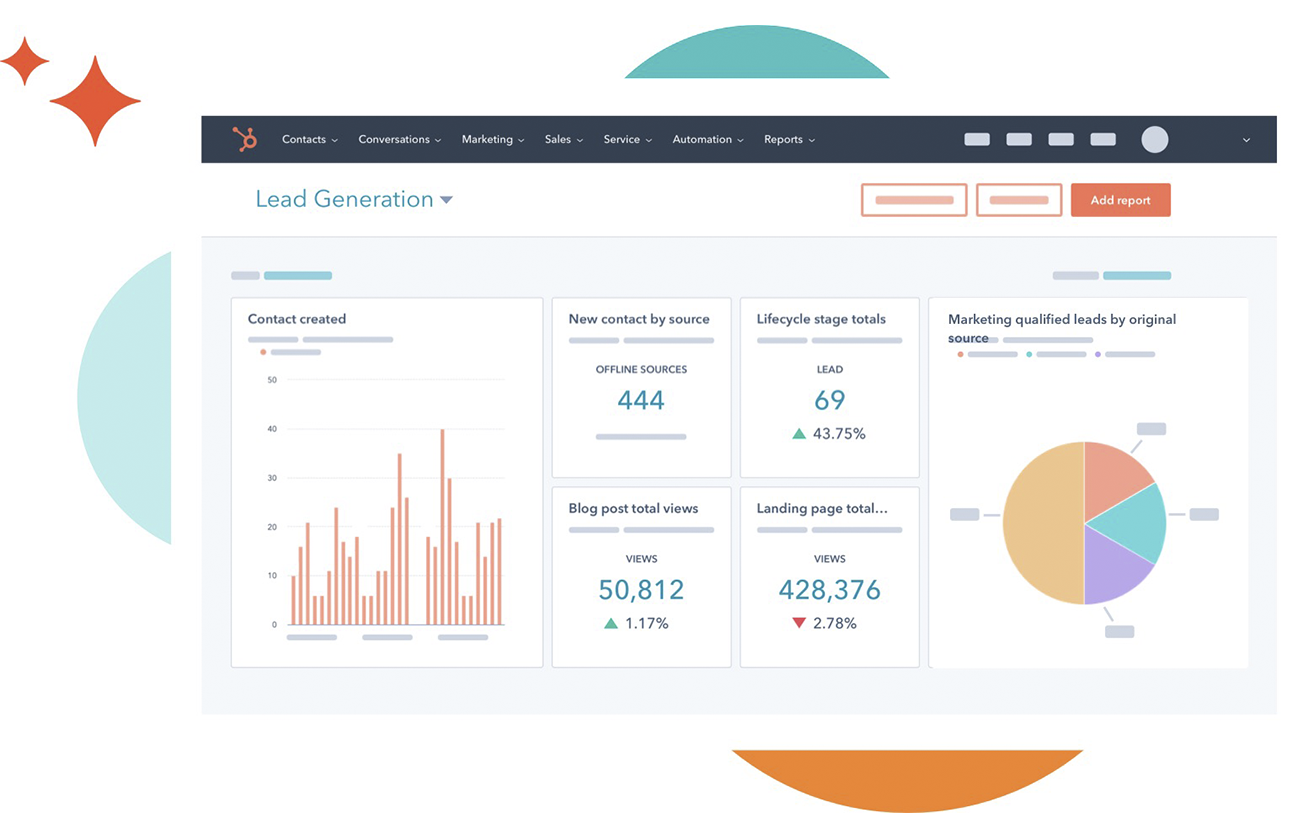
InVideo
InVideo utilises the power of AI to equip influencers with the ability to create top-notch video content without requiring editing skills. Its extensive collection of templates, effects, and royalty-free music simplifies the video creation, enabling influencers to produce captivating and professionally crafted videos that engage their audience. The InVideos AI system also provides suggestions for edits and enhancements, making the creative process more efficient and effective.
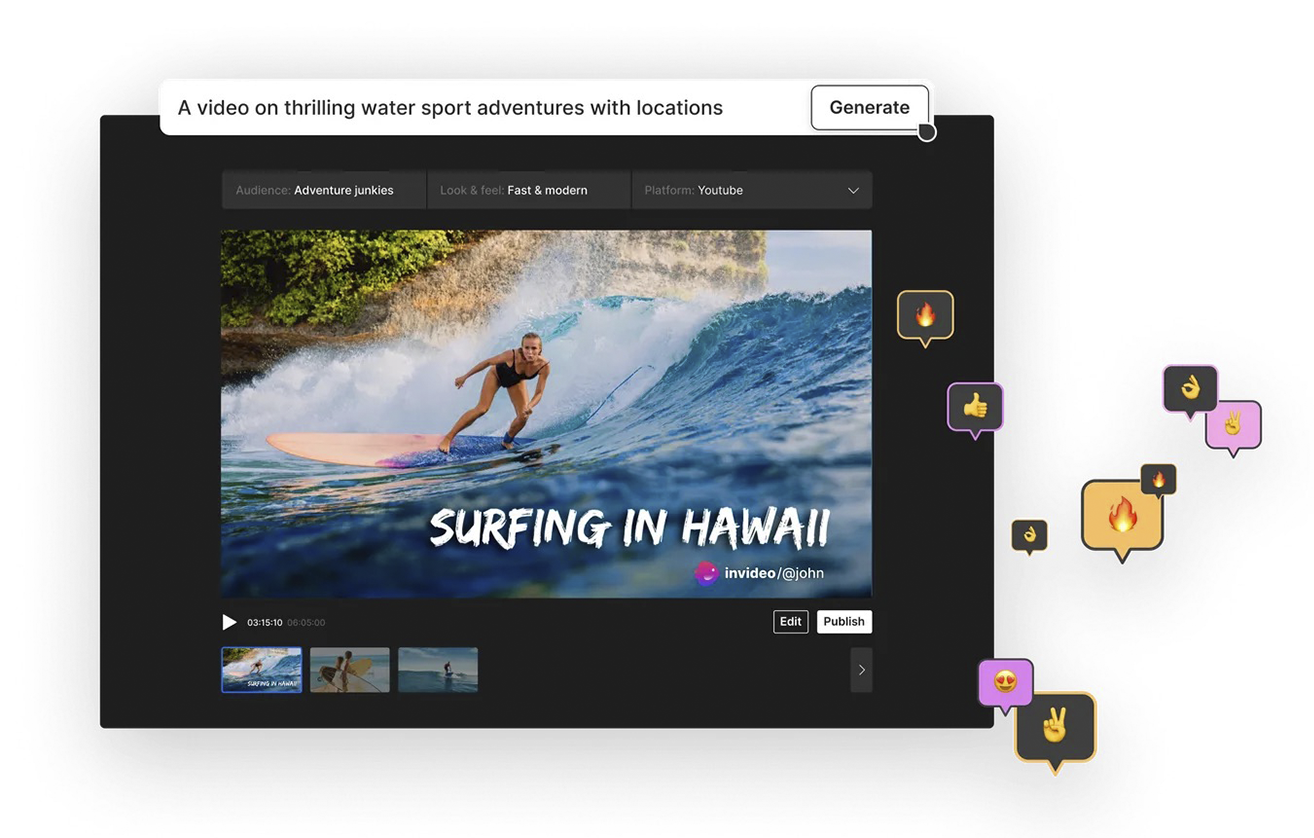
ChatGPT
ChatGPT has revolutionised content creation in the influencer marketing realm. This remarkable AI tool generates ideas, drafts blog posts, and crafts clever social media captions within seconds. ChatGPT’s capacity to generate text that closely resembles human writing based on prompts has become an invaluable resource for influencers seeking to maintain a dynamic and engaging online presence. Its versatility across subjects and styles ensures that content remains fresh and relevant for its target audience.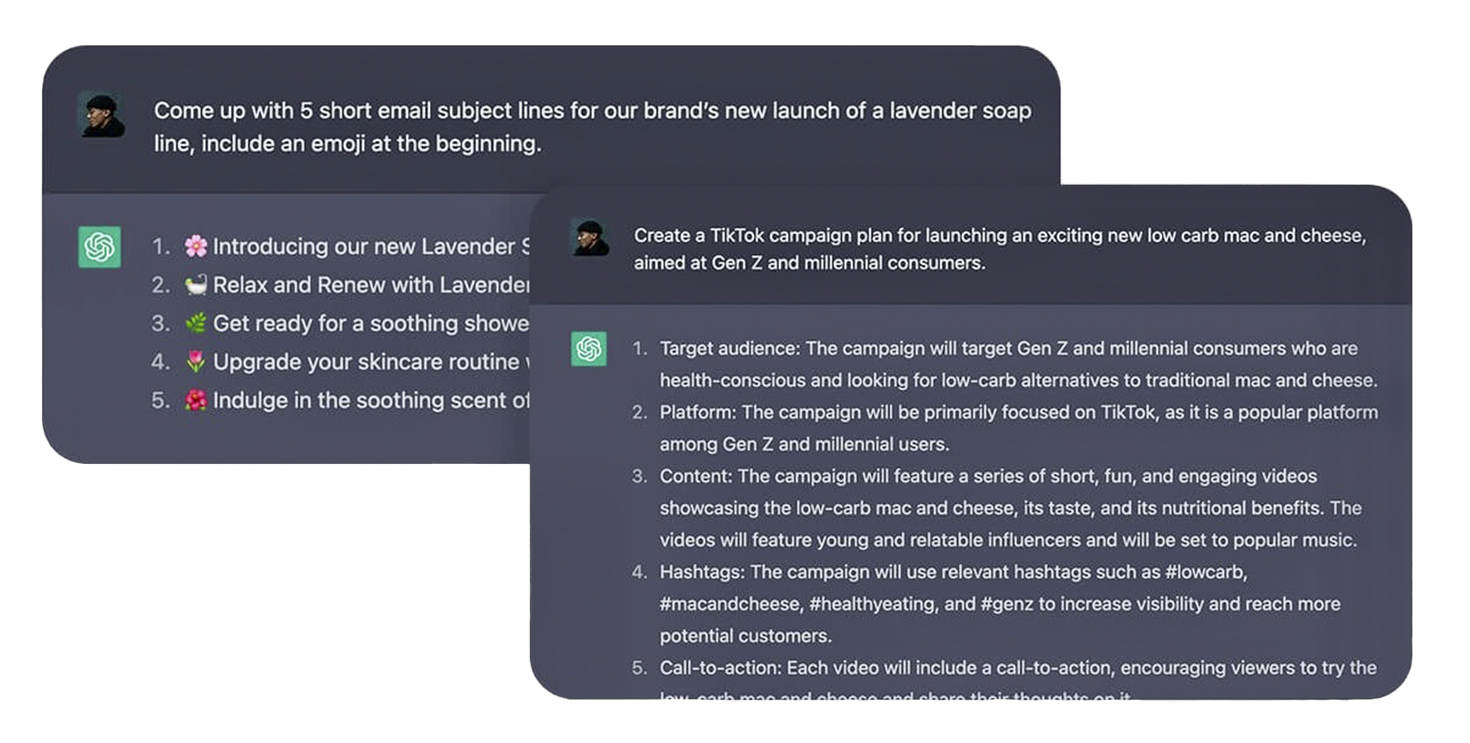
Grammarly
Grammarly goes beyond spell-checking; it serves as an AI-powered writing assistant that assists influencers in refining their written content by ensuring clarity, engagement and grammatical excellence. By evaluating tone and readability factors, Grammarly guarantees that every blog post, tweet or caption resonates effectively with the intended audience while maintaining quality.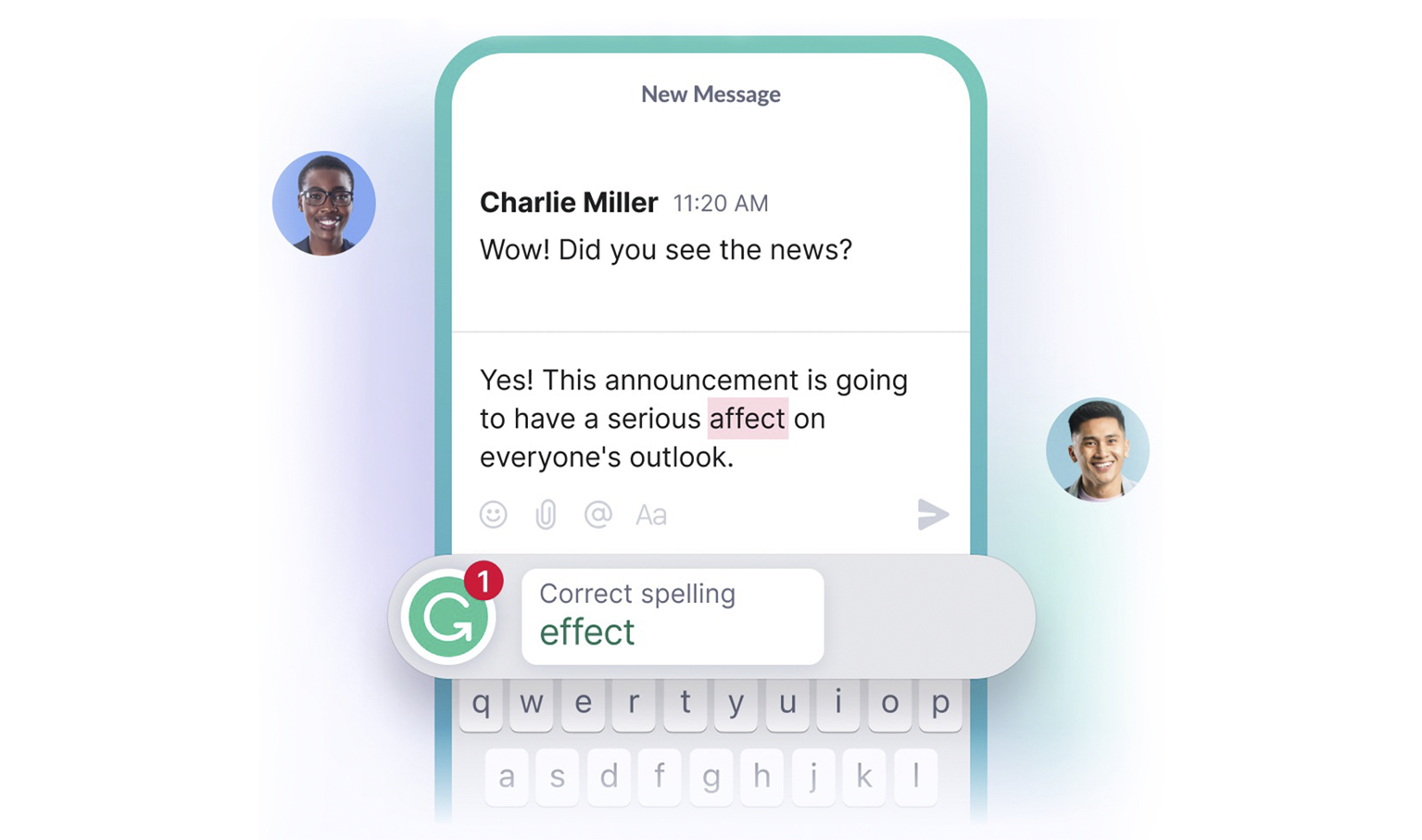
Canva
Canva is a platform that empowers influencers by providing design tools enhanced by AI technology. With Canva, influencers can effortlessly create graphics, presentations and social media posts. The AI algorithms integrated into Canva offer suggestions for design layouts, colour combinations and fonts to help influencers achieve a look without graphic design skills.

Is AI An Opportunity Or A Threat To Influencer Marketing?
As the world of influencer marketing continues to evolve, there has been a discussion about incorporating Artificial Intelligence (AI); is it an opportunity or a threat to the dynamics of influencer partnerships and content creation? This question holds significance as AI tools become increasingly prevalent in shaping marketing campaigns, generating content, and analysing audience engagement. By considering the advantages and disadvantages of AI’s role in influencer marketing, we can understand its impact on creators and their audiences.
The Opportunities Presented by AI
AI presents opportunities that can significantly enhance the landscape of influencer marketing:
- Improved Content Creation: With the assistance of AI tools, creators can develop captivating and relevant content, ensuring that each piece resonates with their target audiences.
- Efficient Audience Analysis: The ability of AI to analyse amounts of data helps influencers gain insights into their audience’s preferences and behaviours, leading to more effective marketing campaigns.
- Streamlined Workflow: By automating tasks, AI allows influencers to focus on creativity and strategic planning, ultimately improving the quality of influencer partnerships.
The Challenges Posed by AI
While there are advantages, the integration of AI in influencer marketing also presents a set of challenges:
- Concerns about Authenticity: AI-generated content may raise doubts regarding authenticity, which is crucial for maintaining a solid relationship between influencers and their audience.
- Excessive Dependence on Technology: There’s a risk that relying heavily on AI tools could diminish influencers’ personal touch and intuition of their content and interactions with their audience.
- Fears of Job Displacement: As AI becomes more advanced, there are worries about it replacing creativity and effort, potentially affecting the livelihood of creators.
Real-World Examples of AI in Influencer Marketing
Here are three real-world examples of brands that have utilised AI in their marketing campaigns, illustrating the diverse applications of AI across different industries:
- Beauty Brand Embraces AI: Cosabella’s Strategy Revolution
- Cosabella, a renowned beauty brand, used AI tools to transform its influencer marketing campaigns. This strategic move enabled the brand to enhance its collaborations with influencers, leading to a significant 50% increase in return on ad spend and a 12% reduction in advertising costs. The use of AI-powered solutions allowed for more targeted and effective influencer partnerships, showcasing the potential of AI in refining marketing tactics within the beauty industry.
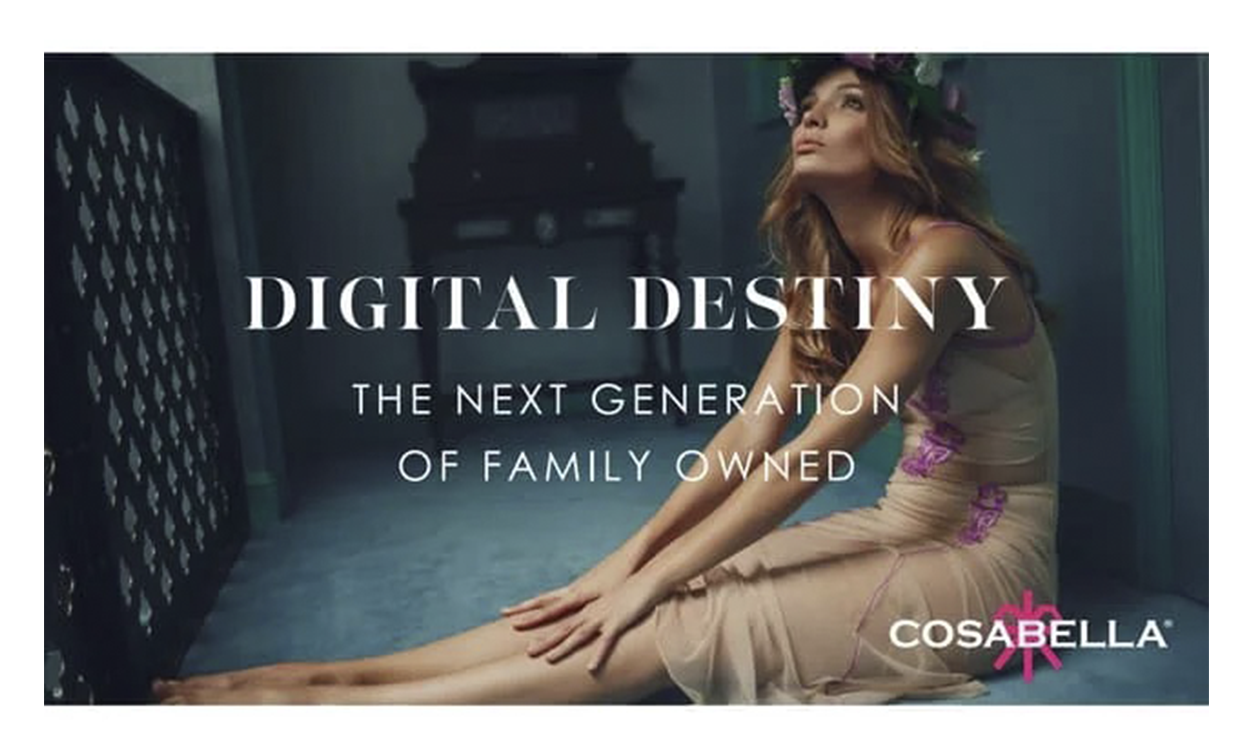
- Automotive Industry Takes the AI Route: Volkswagen’s Predictive Success
- Volkswagen, stepping beyond traditional marketing, applied AI for predictive analysis in their influencer marketing campaigns. This innovative approach helped accurately forecast consumer buying decisions, optimising influencer marketing efforts. As a result, Volkswagen saw a 20% increase in sales from their dealerships. This example highlights AI’s versatility in enhancing marketing strategies beyond direct applications, proving its efficacy in improving influencer marketing outcomes through data-driven insights.
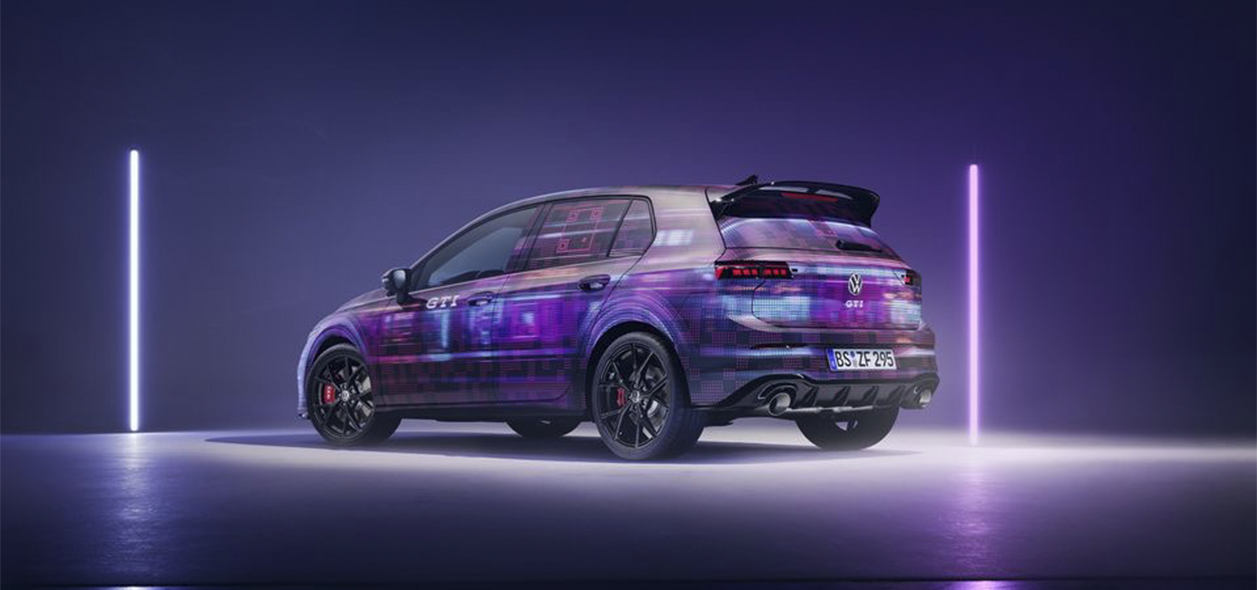
- McDonald’s and Leo Burnett Thailand: Perfecting Fried Chicken with AI
- In collaboration with Leo Burnett Thailand, McDonald’s embarked on a project to define the essence of the perfect fried chicken using AI. They utilised ChatGPT to analyse customer preferences and create the McFried Chicken product. This approach highlights how AI can play a crucial role in product development and marketing by understanding and catering to specific consumer desires.
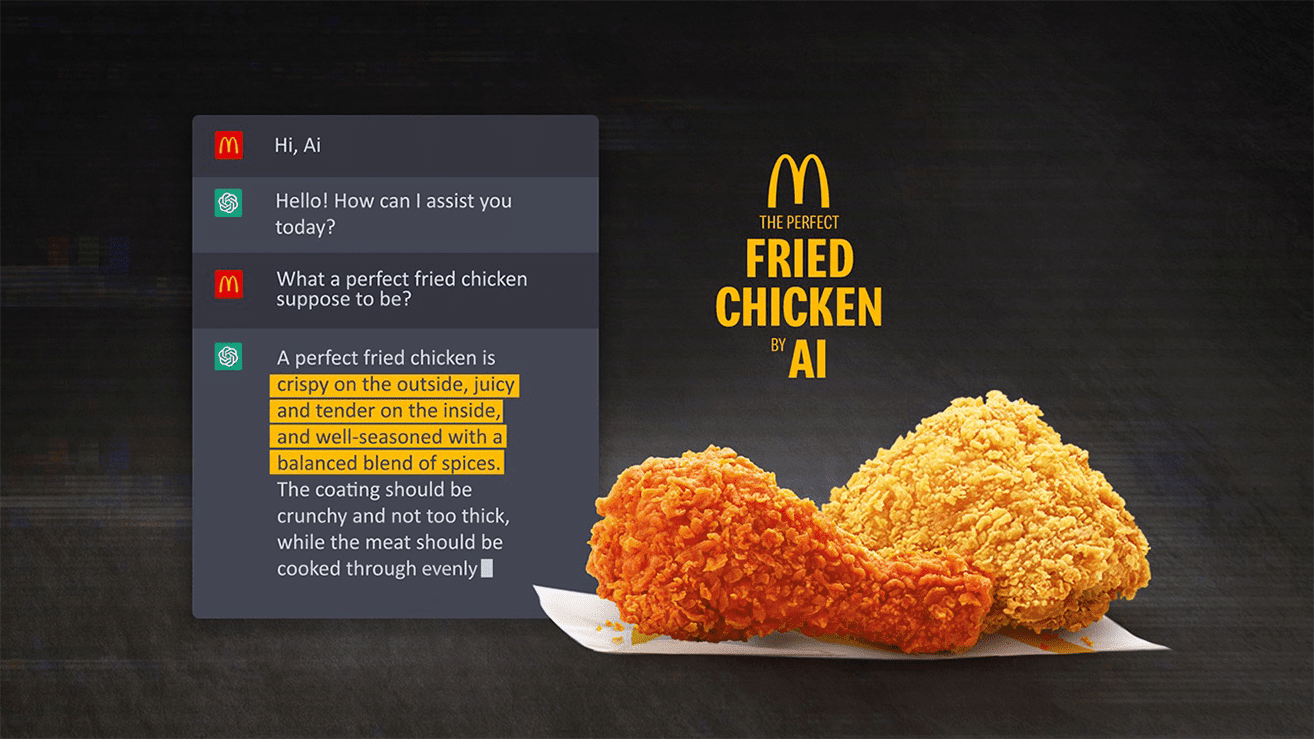
Final thoughts
Artificial intelligence (AI) has emerged as a crucial player in today’s fast-paced marketing world. It enables marketers to automate tasks, enhance content creation, and establish connections with their target audiences. This article looked at how AI tools revolutionise influencer marketing, making it more efficient, genuine and impactful for businesses and creators.
At the forefront of this transformative movement is Crossnetics, a pioneering platform that harnesses the power of AI to optimise campaigns and cultivate partnerships. Embrace the future of marketing by joining Crossnetics and unlock the potential for your influencer strategies. To learn more, visit the website.
FAQ
1. How is AI used in influencer marketing?
AI is revolutionising influencer marketing by enabling brands and media agencies to analyse vast data to select influencers whose followers closely match their targeted audiences. Machine learning algorithms also optimise campaign performance and content relevance, ensuring that marketing efforts are efficient and impactful.
2. What are AI influencers?
AI influencers are virtual characters created using advanced computer graphics and machine learning algorithms. They engage with real audiences on social media platforms, offering brands innovative ways to promote products and services to targeted demographics without relying on human influencers.
3. What are the different types of influencers?
Influencers are typically segmented into four main categories, each offering unique benefits for influencer marketing campaigns:
- Nano Influencers: Possess 1,000–10,000 followers, known for high engagement rates and niche audiences.
- Micro Influencers: Have 10,000–100,000 followers, offering authenticity with a more focused audience.
- Macro Influencers: Boast 100,000–1 million followers, providing a broad reach without the celebrity status price tag.
- Mega Influencers: With over 1 million followers, these are often celebrities or well-known personalities, offering the broadest reach and visibility.
4. How many virtual influencers are there, and who are the most famous?
There are over 100 virtual influencers captivating audiences worldwide. Among the most famous are Lil Miquela, who collaborates with high-fashion brands, and Lu do Magalu, a digital ambassador for a Brazilian retail company. These AI influencers offer unique engagement opportunities for brands targeting tech-savvy audiences.
5. Can AI predict influencer marketing success?
Yes, by analysing historical data and current engagement metrics, AI can predict the likely success of influencer marketing campaigns. Machine learning algorithms assess compatibility between an influencer’s audience and a brand’s target demographic, forecast engagement rates, and provide insights that help refine marketing strategies for better outcomes.
